EC
-
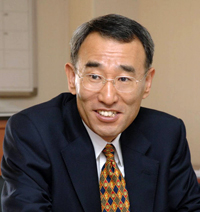 Professor Yong-Tak Im of Mechanical Engineering Appointed as President of Korea Institute of Machinery and Materials
Yong-Tak Im, Professor of the Department of
Mechanical Engineering at KAIST, was sworn in on February 25, 2014 as
the 16th president of the Korea Institute of Machinery and Materials
(KIMM), a leading government-funded research institution in Korea. KIMM was
established in 1976 to contribute to the development of
Korea through the invention of source technology and technology transfer in
mechanical engineering.
President Im graduated from Seoul National
University, obtaining degrees of Bachelor of Science and Master’s in mechanical
engineering. He later studied at the University of California in Berkeley and
received a doctoral degree in mechanical engineering.
After working as an assistant professor of
the Industrial and Systems Engineering at the Ohio State University,
President Im joined KAIST as a professor of mechanical engineering in 1989.
President Im took many important posts at
KAIST, including Dean of Planning Office, Dean of External Affairs and Public
Relations Office, and Associate Vice President of Special Projects and
Institutional Relations, making a great addition to the university’s endeavors for
globalization.
Among the awards President Im received was the
William Johnson Award in 2007 presented by the Advances in Materials and
Processing Technologies, the Research Achievement Award in 2010 by the Global
Congress on Manufacturing and Management, and the Presidential Award in 2012 by
the Republic of Korea. He was also elected as the vice president of the Korean
Society of Mechanical Engineers, the largest association of professionals in
the mechanical engineering field in Korea.
President Im is currently a professor at
POSCO, an internationally known Korean steel company, and a member of the
Korean Academy of Science and Technology and the National Academy of
Engineering of Korea, respectively.
President Im will serve KIMM for three
years until February 24, 2017.
2014.02.25 View 12446
Professor Yong-Tak Im of Mechanical Engineering Appointed as President of Korea Institute of Machinery and Materials
Yong-Tak Im, Professor of the Department of
Mechanical Engineering at KAIST, was sworn in on February 25, 2014 as
the 16th president of the Korea Institute of Machinery and Materials
(KIMM), a leading government-funded research institution in Korea. KIMM was
established in 1976 to contribute to the development of
Korea through the invention of source technology and technology transfer in
mechanical engineering.
President Im graduated from Seoul National
University, obtaining degrees of Bachelor of Science and Master’s in mechanical
engineering. He later studied at the University of California in Berkeley and
received a doctoral degree in mechanical engineering.
After working as an assistant professor of
the Industrial and Systems Engineering at the Ohio State University,
President Im joined KAIST as a professor of mechanical engineering in 1989.
President Im took many important posts at
KAIST, including Dean of Planning Office, Dean of External Affairs and Public
Relations Office, and Associate Vice President of Special Projects and
Institutional Relations, making a great addition to the university’s endeavors for
globalization.
Among the awards President Im received was the
William Johnson Award in 2007 presented by the Advances in Materials and
Processing Technologies, the Research Achievement Award in 2010 by the Global
Congress on Manufacturing and Management, and the Presidential Award in 2012 by
the Republic of Korea. He was also elected as the vice president of the Korean
Society of Mechanical Engineers, the largest association of professionals in
the mechanical engineering field in Korea.
President Im is currently a professor at
POSCO, an internationally known Korean steel company, and a member of the
Korean Academy of Science and Technology and the National Academy of
Engineering of Korea, respectively.
President Im will serve KIMM for three
years until February 24, 2017.
2014.02.25 View 12446 -
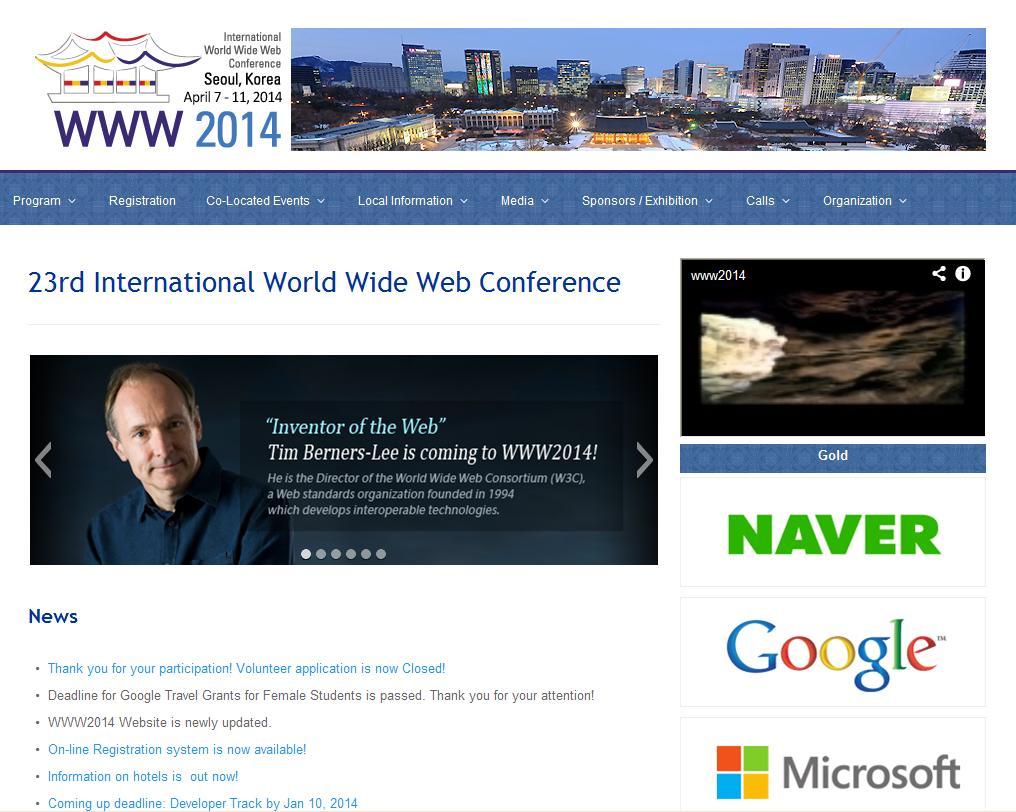 World's Largest Web Conference To Be Held in Korea
The 2014 International World Wide Web Conference (WWW 2014), the world’s most prestigious academic conference in the field of web, will be held for the first time in Korea. The conference is to be last for five days at Seoul COEX, from 7th to 11th April. International World Wide Web Conference covers a wide range of web-related areas, including technologies, research papers, services and more. Since the first conference in 1994 in Switzerland, it has been held in various parts of North America, Europe, South America and Asia, attracting more than 1000 experts in the field. The 23rd International World Wide Web Conference is managed by the International World Wide Web Conferences Steering Committee (IW3C2) and co-hosted by KAIST and National Agency for Technology and Standards, as well as sponsored by Korea Information Science Society and the World Wide Web Consortium (W3C). Keynote speakers for this year’s conference include inventor of the World Wide Web, Sir Tim Berners-Lee, senior vice president of Microsoft, Dr. Qi Lu, and Carnegie Mellon University’s Prof. Christos Faloutsos, as well as Samsung Electronic’s vice president Jong-Deok Choi. In addition to WWW 2014, BigData Innovators Gathering (BIG 2014) and Web for Access (W4A 2014) is also to be held in joint. KAIST Computer Sciences Department’s Prof. Jinwan Jeong, in charge of directing this year’s conference, said “From one-sided 1st generation web to two-way 2nd generation web, such as blogs, and then recently to the 3rd generation web, which include social networks and semantic webs, the web technologies has grown vastly over the past 25 years. WWW 2014 will be the opportunity for Korea to discuss with the world about the informatization and future of the web.” Pre-registration for WWW 2014 can be applied at the official webpage for WWW 2014 (http://www2014.kr) before 17th February.
2014.02.14 View 11945
World's Largest Web Conference To Be Held in Korea
The 2014 International World Wide Web Conference (WWW 2014), the world’s most prestigious academic conference in the field of web, will be held for the first time in Korea. The conference is to be last for five days at Seoul COEX, from 7th to 11th April. International World Wide Web Conference covers a wide range of web-related areas, including technologies, research papers, services and more. Since the first conference in 1994 in Switzerland, it has been held in various parts of North America, Europe, South America and Asia, attracting more than 1000 experts in the field. The 23rd International World Wide Web Conference is managed by the International World Wide Web Conferences Steering Committee (IW3C2) and co-hosted by KAIST and National Agency for Technology and Standards, as well as sponsored by Korea Information Science Society and the World Wide Web Consortium (W3C). Keynote speakers for this year’s conference include inventor of the World Wide Web, Sir Tim Berners-Lee, senior vice president of Microsoft, Dr. Qi Lu, and Carnegie Mellon University’s Prof. Christos Faloutsos, as well as Samsung Electronic’s vice president Jong-Deok Choi. In addition to WWW 2014, BigData Innovators Gathering (BIG 2014) and Web for Access (W4A 2014) is also to be held in joint. KAIST Computer Sciences Department’s Prof. Jinwan Jeong, in charge of directing this year’s conference, said “From one-sided 1st generation web to two-way 2nd generation web, such as blogs, and then recently to the 3rd generation web, which include social networks and semantic webs, the web technologies has grown vastly over the past 25 years. WWW 2014 will be the opportunity for Korea to discuss with the world about the informatization and future of the web.” Pre-registration for WWW 2014 can be applied at the official webpage for WWW 2014 (http://www2014.kr) before 17th February.
2014.02.14 View 11945 -
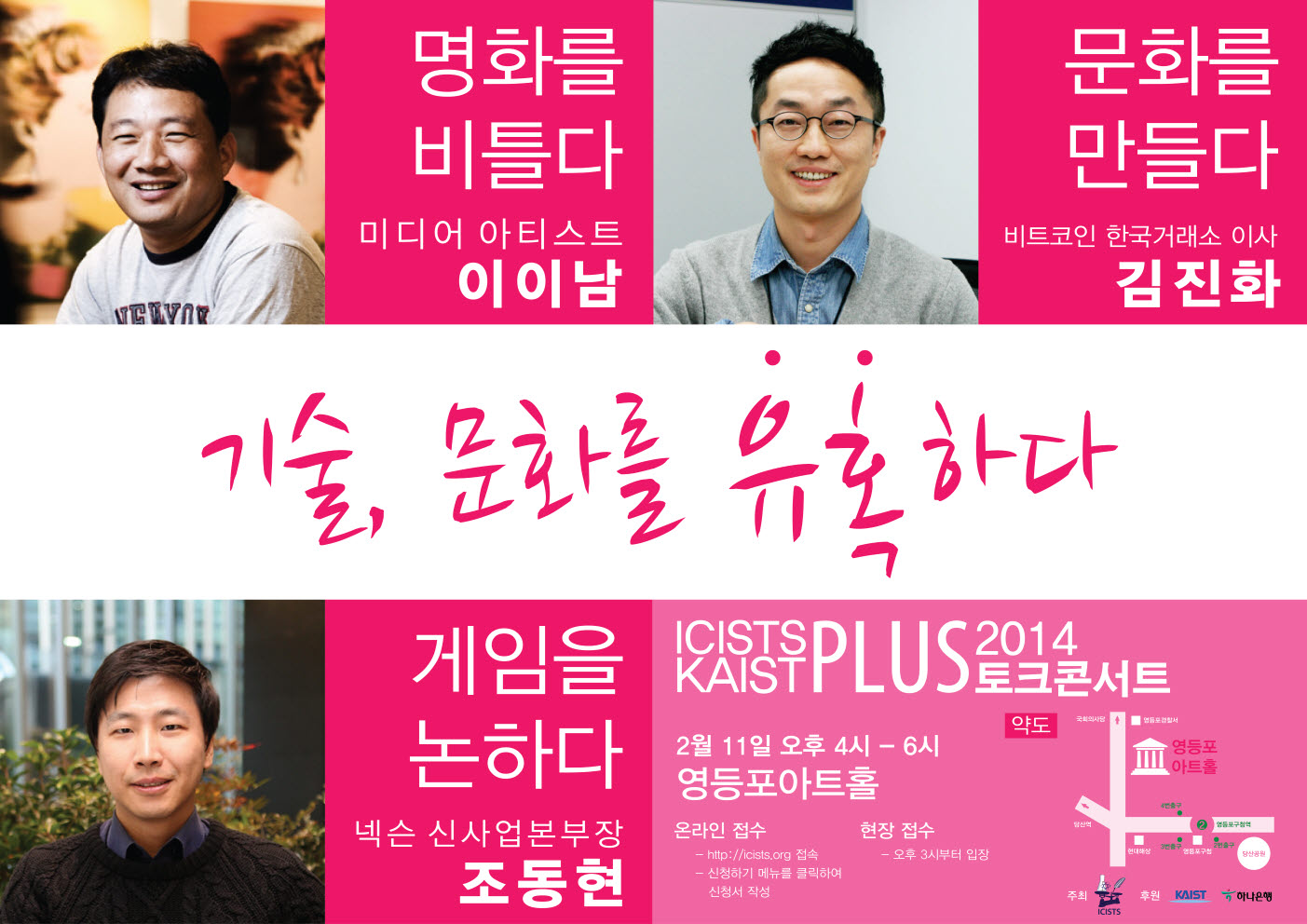 ICISTS-KAIST Talk Concert 2014
The International Conference for the Integration of Science, Technology and Society at KAIST (ICISTS-KAIST) will hold a talk entitled “Scientific Technology and Culture” at Youngdungpo Art Hall in Seoul on Tuesday, February 11, 2014.The three main presenters will be: Jin-Hwa Kim, Director of Korbit, Dong-Hyeon Jo, Chief of New Business at Nexon, and media artist Yi-Nam Lee. They will address the meeting of culture and scientific technology in the fields of art, games, and other genres.Jin-Hwa Kim is the director of Korbit, the first Korean bitcoin exchange, and wrote The Next Money: Bitcoin, the world’s first bitcoin textbook. He will elaborate on how science and technology are constantly changing and have affected popular culture, and how public demand gave birth to bitcoin.Dong-Hyeon Jo from Nexon will explain how the appearance of new media and platforms such as smartphones has changed our lives.Media artist Yi-Nam Lee has been described as “the second Nam-June Paik,” an internationally-acclaimed video artist, for his integration of oriental and western masterpieces with modern media. During the event, samples of his artwork will be displayed.ICISTS-KAIST is a student organization which has held a conference every year since 2005 with hundreds of students attending from many parts of the world, Asia in particular.
2014.02.07 View 11788
ICISTS-KAIST Talk Concert 2014
The International Conference for the Integration of Science, Technology and Society at KAIST (ICISTS-KAIST) will hold a talk entitled “Scientific Technology and Culture” at Youngdungpo Art Hall in Seoul on Tuesday, February 11, 2014.The three main presenters will be: Jin-Hwa Kim, Director of Korbit, Dong-Hyeon Jo, Chief of New Business at Nexon, and media artist Yi-Nam Lee. They will address the meeting of culture and scientific technology in the fields of art, games, and other genres.Jin-Hwa Kim is the director of Korbit, the first Korean bitcoin exchange, and wrote The Next Money: Bitcoin, the world’s first bitcoin textbook. He will elaborate on how science and technology are constantly changing and have affected popular culture, and how public demand gave birth to bitcoin.Dong-Hyeon Jo from Nexon will explain how the appearance of new media and platforms such as smartphones has changed our lives.Media artist Yi-Nam Lee has been described as “the second Nam-June Paik,” an internationally-acclaimed video artist, for his integration of oriental and western masterpieces with modern media. During the event, samples of his artwork will be displayed.ICISTS-KAIST is a student organization which has held a conference every year since 2005 with hundreds of students attending from many parts of the world, Asia in particular.
2014.02.07 View 11788 -
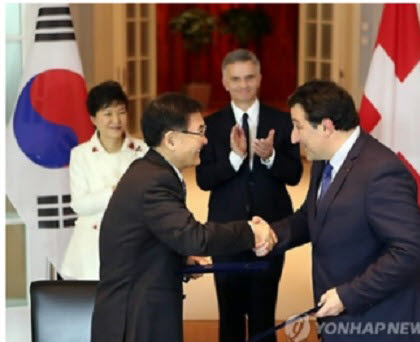 2014 Davos Forum: KAIST-EPFL Connection
The Korean-American Science and Technology News (KASTN), a biweekly global electronic newsletter carrying news and analyses in science and technology, as well as social, economic, and cultural issues related to the general interest of the Korean-American professional community, published an article on the partnership agreement made by KAIST and the Ecole Polytechnique Federale Lausanne (EPFL) during the 2014 World Economic Forum held at Davos, Switzerland, from January 22nd to 25th.
For the article, please click the link below: KASTN Issue 14-05, February 26, 2014
http://www.phy.duke.edu/~myhan/b_14-05.pdf
2014.02.04 View 9884
2014 Davos Forum: KAIST-EPFL Connection
The Korean-American Science and Technology News (KASTN), a biweekly global electronic newsletter carrying news and analyses in science and technology, as well as social, economic, and cultural issues related to the general interest of the Korean-American professional community, published an article on the partnership agreement made by KAIST and the Ecole Polytechnique Federale Lausanne (EPFL) during the 2014 World Economic Forum held at Davos, Switzerland, from January 22nd to 25th.
For the article, please click the link below: KASTN Issue 14-05, February 26, 2014
http://www.phy.duke.edu/~myhan/b_14-05.pdf
2014.02.04 View 9884 -
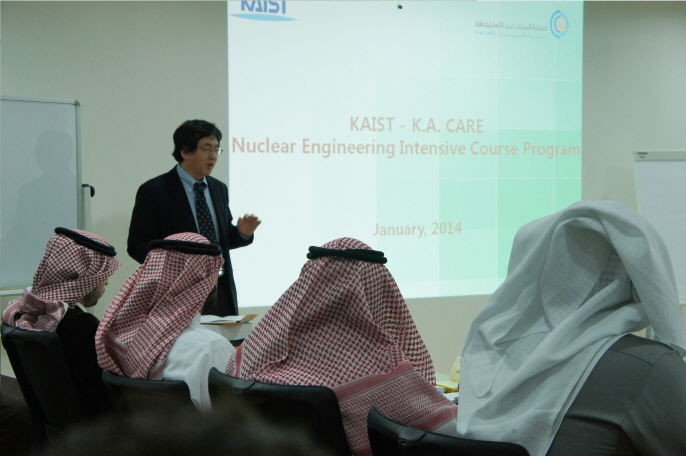 KAIST-Saudi Nuclear Workforce Training
Nuclear Engineering Intensive Course Program Held in Saudi Arabia from January 5th to 23rd
KUSTAR (The Khalifa University of Science and Technology Studies)-KAIST Institute of Education began its Nuclear Engineering Intensive Course Program on 5th January with researchers from K.A.CARE (King Abdullah City for Atomic and Renewable Energy) of Riyadh, Saudi Arabia.
This program, which was lasted until 23rd January, provided education to students on the basic technologies in the field of nuclear power.
The course involves a wide range of lectures, such as basic nuclear physics, applications using radiation, nuclear reactor design and safety, as well as nuclear power engineering.
In order to utilize the nuclear power and renewable energy, K.A.CARE was established in April 2010. The institution is also involved in the construction of nuclear infrastructure, including the site investigations, the establishment of regulatory bodies and state-owned nuclear companies, along with the newly launched workforce-training program.
The Director of the KUSTAR-KAIST Education Research Institute, Professor Soong-Heung Jang said, “This program is the beginning of long-term cooperation with Saudi Arabia. Our experience can be the basis for the construction of an extensive training program that involves many areas of nuclear engineering field.”
KAIST has been working in close cooperation with various institutions around the world, which also includes the establishment of KUSTAR-KAIST Institute of Education and Research in July 2010. KAIST is also actively cooperating with UAE Khalifa University in Middle East, sharing faculty, holding joint research programs and exchanging students.
2014.02.03 View 12315
KAIST-Saudi Nuclear Workforce Training
Nuclear Engineering Intensive Course Program Held in Saudi Arabia from January 5th to 23rd
KUSTAR (The Khalifa University of Science and Technology Studies)-KAIST Institute of Education began its Nuclear Engineering Intensive Course Program on 5th January with researchers from K.A.CARE (King Abdullah City for Atomic and Renewable Energy) of Riyadh, Saudi Arabia.
This program, which was lasted until 23rd January, provided education to students on the basic technologies in the field of nuclear power.
The course involves a wide range of lectures, such as basic nuclear physics, applications using radiation, nuclear reactor design and safety, as well as nuclear power engineering.
In order to utilize the nuclear power and renewable energy, K.A.CARE was established in April 2010. The institution is also involved in the construction of nuclear infrastructure, including the site investigations, the establishment of regulatory bodies and state-owned nuclear companies, along with the newly launched workforce-training program.
The Director of the KUSTAR-KAIST Education Research Institute, Professor Soong-Heung Jang said, “This program is the beginning of long-term cooperation with Saudi Arabia. Our experience can be the basis for the construction of an extensive training program that involves many areas of nuclear engineering field.”
KAIST has been working in close cooperation with various institutions around the world, which also includes the establishment of KUSTAR-KAIST Institute of Education and Research in July 2010. KAIST is also actively cooperating with UAE Khalifa University in Middle East, sharing faculty, holding joint research programs and exchanging students.
2014.02.03 View 12315 -
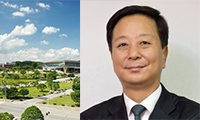 Man-Gi Paik Appointed as New President of KAIST Alumni Association
The KAIST Alumni Association selected Man-Gi Paik, a patent lawyer at the prestigious law firm of Kim & Chang in Korea, as its 22nd president. President Paik will hold the post from January 2014 to December 2015. After receiving a Masters of Science in Electrical Engineering at KAIST in 1976, President Paik attended the Wharton School of the University of Pennsylvania in the United States and obtained a Masters of Business Administration. He served as the president of the Korean Association of Intellectual Property Service and a board member of KAIST. He is currently an adjunct professor at the Graduate School of Intellectual Property, KAIST. President Paik said, “I’m honored to lead the KAIST alumni and look forward to creating many opportunities to work for the development of our alma mater.”
2014.02.03 View 11057
Man-Gi Paik Appointed as New President of KAIST Alumni Association
The KAIST Alumni Association selected Man-Gi Paik, a patent lawyer at the prestigious law firm of Kim & Chang in Korea, as its 22nd president. President Paik will hold the post from January 2014 to December 2015. After receiving a Masters of Science in Electrical Engineering at KAIST in 1976, President Paik attended the Wharton School of the University of Pennsylvania in the United States and obtained a Masters of Business Administration. He served as the president of the Korean Association of Intellectual Property Service and a board member of KAIST. He is currently an adjunct professor at the Graduate School of Intellectual Property, KAIST. President Paik said, “I’m honored to lead the KAIST alumni and look forward to creating many opportunities to work for the development of our alma mater.”
2014.02.03 View 11057 -
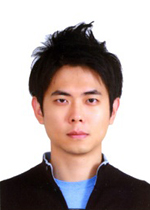 Hyun-Sik Kim, KAIST doctoral student, receives Predoctoral Achievement Award from IEEE Solid-State Circuits Society
Hyun-Sik Kim, a Ph.D. student from the Department of Electrical Engineering, is scheduled to receive the “Predoctoral Achievement Award” from the Institute of Electrical and Electronics Engineers (IEEE) Solid-State Circuit Society (SSCS) at its 2014 annual conference to be held on February 9-13 in San Francisco, USA. Kim, the first Korean student receiving the award, will also be given a 1,000 USD honorarium.
Established in 1983, the Predoctoral Achievement Award has been given to a small number of promising graduate students, which is made on the basis of academic record and potential, quality of publications, and a graduate study program well matched to the charter of SSCS. Among the previous recipients were Professor Bernhard Boser of the University of California in Berkeley and Professor Michael Flynn of Michigan University.
Kim published 15 research papers in international journals and conferences, applied for 35 domestic and international patents, and received the best paper award in human technology from Samsun Electronics for three consecutive years.
Professor Kyu-Hyung Cho of Electrical Engineering is Kim's principal advisor.
2014.01.27 View 12312
Hyun-Sik Kim, KAIST doctoral student, receives Predoctoral Achievement Award from IEEE Solid-State Circuits Society
Hyun-Sik Kim, a Ph.D. student from the Department of Electrical Engineering, is scheduled to receive the “Predoctoral Achievement Award” from the Institute of Electrical and Electronics Engineers (IEEE) Solid-State Circuit Society (SSCS) at its 2014 annual conference to be held on February 9-13 in San Francisco, USA. Kim, the first Korean student receiving the award, will also be given a 1,000 USD honorarium.
Established in 1983, the Predoctoral Achievement Award has been given to a small number of promising graduate students, which is made on the basis of academic record and potential, quality of publications, and a graduate study program well matched to the charter of SSCS. Among the previous recipients were Professor Bernhard Boser of the University of California in Berkeley and Professor Michael Flynn of Michigan University.
Kim published 15 research papers in international journals and conferences, applied for 35 domestic and international patents, and received the best paper award in human technology from Samsun Electronics for three consecutive years.
Professor Kyu-Hyung Cho of Electrical Engineering is Kim's principal advisor.
2014.01.27 View 12312 -
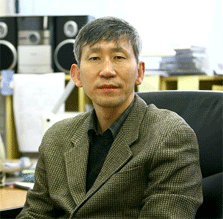 Professor Suk-Bok Chang receives 14th Korea Science Award in the field of Chemistry
Professor Suk-Bok Chang from the Department of Chemistry at KAIST received the “2013 Korea Science Award” in chemistry hosted by the National Research Foundation and the Ministry of Science, ICT, and Future Planning, Republic of Korea.
The Korea Science Award is a presidential award of Korea, which was first established in 1987 to recognize research excellence in natural science. Three scientists are selected for the award in every other year.
Professor Chang primarily researches the catalyzing mechanism of carbon-hydrogen bonds in organic molecules. He has succeeded in making great progress in the field of organic chemistry especially in developing a new type of transition metal catalytic behavior that can be applied to low-reactivity compounds.
Hydrocarbons are abundant in nature, but its unreactive nature in ambient conditions makes it unsuitable as reactant for compound synthesis. In addition, the mechanism behind transition metal catalyzed carbon-hydrogen bond synthesis has not been proven sufficiently.
The prediction that fossil fuels will be depleted before the end of the century makes hydrocarbon synthesis an extremely important matter.
The need for an effective hydrocarbon synthesis method inspired Professor Chang to pursue research in the transition metal catalysis method and to develop a catalytic system that would allow efficient synthesis even in ambient conditions.
Professor Chang has been the lead researcher for the Institute for Basic Science’s “molecule catalysis reaction research team” since December 2012 and has been carrying out this research in KAIST.
2014.01.27 View 12340
Professor Suk-Bok Chang receives 14th Korea Science Award in the field of Chemistry
Professor Suk-Bok Chang from the Department of Chemistry at KAIST received the “2013 Korea Science Award” in chemistry hosted by the National Research Foundation and the Ministry of Science, ICT, and Future Planning, Republic of Korea.
The Korea Science Award is a presidential award of Korea, which was first established in 1987 to recognize research excellence in natural science. Three scientists are selected for the award in every other year.
Professor Chang primarily researches the catalyzing mechanism of carbon-hydrogen bonds in organic molecules. He has succeeded in making great progress in the field of organic chemistry especially in developing a new type of transition metal catalytic behavior that can be applied to low-reactivity compounds.
Hydrocarbons are abundant in nature, but its unreactive nature in ambient conditions makes it unsuitable as reactant for compound synthesis. In addition, the mechanism behind transition metal catalyzed carbon-hydrogen bond synthesis has not been proven sufficiently.
The prediction that fossil fuels will be depleted before the end of the century makes hydrocarbon synthesis an extremely important matter.
The need for an effective hydrocarbon synthesis method inspired Professor Chang to pursue research in the transition metal catalysis method and to develop a catalytic system that would allow efficient synthesis even in ambient conditions.
Professor Chang has been the lead researcher for the Institute for Basic Science’s “molecule catalysis reaction research team” since December 2012 and has been carrying out this research in KAIST.
2014.01.27 View 12340 -
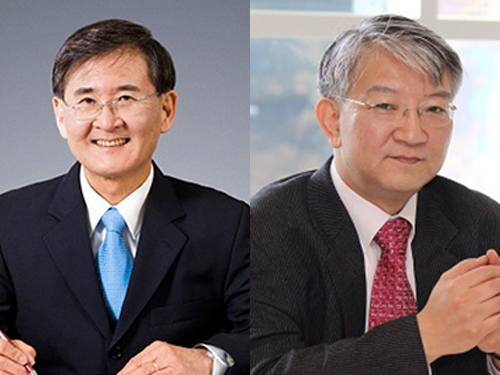 KAIST Participates in the 2014 Davos Forum on January 22-25 in Switzerland
Through the sessions of the Global University Leaders Forum, IdeasLab, and Global Agenda Councils on Biotechnology, KAIST participants will actively engage with global leaders in the discussion of issues on education innovation and technological breakthroughs.
The 2014 Annual Meeting of the World Economic Forum (WEF), known as the Davos Forum, will kick off on January 22-25 in Davos-Klosters, Switzerland, under the theme of "The Reshaping of the World: Consequences for Society, Politics, and Business." Each year, the Forum attracts about 2,500 distinguished leaders from all around the world and provides an open platform to identify the current and emerging challenges facing the global community and to develop ideas and actions necessary to respond to such challenges.
President Sung-Mo Steve Kang and Distinguished Professor Sang Yup Lee from the Department of Chemical and Biomolecular Engineering, KAIST, will attend the Forum and engage in a series of dialogues on such issues as Massive Open Online Courses, new paradigms for universities and researchers, the transformation of higher education, the role and value of scientific discoveries, and the impact of biotechnology on the future of society and business.
At the session entitled "New Paradigms for Universities of the Future" hosted by the Global University Leaders Forum (GULF), President Kang will introduce KAIST"s ongoing online education program, Education 3.0. GULF was created in 2006 by WEF, which is a small community of the presidents and senior representatives of the top universities in the world.
Implemented in 2012, Education 3.0 incorporates advanced information and communications technology (ICT) to offer students and teachers a learner-based, team-oriented learning and teaching environment. Under Education 3.0, students study online and meet in groups with a professor for in-depth discussions, collaboration, and problem-solving. KAIST plans to expand the program to embrace the global community in earnest by establishing Education 3.0 Global in order to have interactive real-time classes for students and researchers across regions and cultures.
President Kang will also present a paper entitled "Toward Socially Responsible Technology: KAIST"s Approach to Integrating Social and Behavioral Perspectives into Technology Development" at another session of GULF called "Seeking New Approaches to Critical Global Challenges." In the paper, President Kang points out that notwithstanding the many benefits we enjoy from the increasingly interconnected world, digital media may pose a threat to become a new outlet for social problems, for example, Internet or digital addiction.
Experts say that early exposure to digital devices harms the healthy development of cognitive functions, emotions, and social behavior. President Kang will introduce KAIST"s recent endeavor to develop a non-intrusive technology to help prevent digital addiction, which will ultimately be embedded in the form of a virtual coach or mentor that helps and guides people under risk to make constructive use of digital devices. President Kang stresses the fundamental shift in the science and technology development paradigm from research and development (R&D) to a research and solution development (R&SD), taking serious consideration of societal needs, quality of life, and social impacts when conducting research.
Professor Sang Yup Lee will moderate the IdeasLab session at the Davos Forum entitled "From Lab to Life with the California Institute of Technology (Caltech)." Together with scientists from Caltech, he will discuss scientific breakthroughs that transform institutions, industries, and individuals in the near future, such as the development of damage-tolerant lightweight materials with nanotechnology, the ability to read and write genomes, and wireless lab-in-the-body monitors. In addition, he will meet global business leaders at the session of "Sustainability, Innovation, and Growth" and speak about how emerging technologies, biotechnology in particular, will transform future societies, business, and industries.
As a current special adviser of the World Economic Forum"s (WEF) Chemicals Industry Community, Professor Lee will meet global chairs and chief executive officers of chemical companies and discuss ways to advance the industry to become more bio-based and environmentally friendly. He served as a founding chairman of WEF"s Global Agenda Councils on Biotechnology in 2013.
President Sung-Mo Steve Kang Distinguished Professor Sang Yup Lee
2014.01.17 View 12180
KAIST Participates in the 2014 Davos Forum on January 22-25 in Switzerland
Through the sessions of the Global University Leaders Forum, IdeasLab, and Global Agenda Councils on Biotechnology, KAIST participants will actively engage with global leaders in the discussion of issues on education innovation and technological breakthroughs.
The 2014 Annual Meeting of the World Economic Forum (WEF), known as the Davos Forum, will kick off on January 22-25 in Davos-Klosters, Switzerland, under the theme of "The Reshaping of the World: Consequences for Society, Politics, and Business." Each year, the Forum attracts about 2,500 distinguished leaders from all around the world and provides an open platform to identify the current and emerging challenges facing the global community and to develop ideas and actions necessary to respond to such challenges.
President Sung-Mo Steve Kang and Distinguished Professor Sang Yup Lee from the Department of Chemical and Biomolecular Engineering, KAIST, will attend the Forum and engage in a series of dialogues on such issues as Massive Open Online Courses, new paradigms for universities and researchers, the transformation of higher education, the role and value of scientific discoveries, and the impact of biotechnology on the future of society and business.
At the session entitled "New Paradigms for Universities of the Future" hosted by the Global University Leaders Forum (GULF), President Kang will introduce KAIST"s ongoing online education program, Education 3.0. GULF was created in 2006 by WEF, which is a small community of the presidents and senior representatives of the top universities in the world.
Implemented in 2012, Education 3.0 incorporates advanced information and communications technology (ICT) to offer students and teachers a learner-based, team-oriented learning and teaching environment. Under Education 3.0, students study online and meet in groups with a professor for in-depth discussions, collaboration, and problem-solving. KAIST plans to expand the program to embrace the global community in earnest by establishing Education 3.0 Global in order to have interactive real-time classes for students and researchers across regions and cultures.
President Kang will also present a paper entitled "Toward Socially Responsible Technology: KAIST"s Approach to Integrating Social and Behavioral Perspectives into Technology Development" at another session of GULF called "Seeking New Approaches to Critical Global Challenges." In the paper, President Kang points out that notwithstanding the many benefits we enjoy from the increasingly interconnected world, digital media may pose a threat to become a new outlet for social problems, for example, Internet or digital addiction.
Experts say that early exposure to digital devices harms the healthy development of cognitive functions, emotions, and social behavior. President Kang will introduce KAIST"s recent endeavor to develop a non-intrusive technology to help prevent digital addiction, which will ultimately be embedded in the form of a virtual coach or mentor that helps and guides people under risk to make constructive use of digital devices. President Kang stresses the fundamental shift in the science and technology development paradigm from research and development (R&D) to a research and solution development (R&SD), taking serious consideration of societal needs, quality of life, and social impacts when conducting research.
Professor Sang Yup Lee will moderate the IdeasLab session at the Davos Forum entitled "From Lab to Life with the California Institute of Technology (Caltech)." Together with scientists from Caltech, he will discuss scientific breakthroughs that transform institutions, industries, and individuals in the near future, such as the development of damage-tolerant lightweight materials with nanotechnology, the ability to read and write genomes, and wireless lab-in-the-body monitors. In addition, he will meet global business leaders at the session of "Sustainability, Innovation, and Growth" and speak about how emerging technologies, biotechnology in particular, will transform future societies, business, and industries.
As a current special adviser of the World Economic Forum"s (WEF) Chemicals Industry Community, Professor Lee will meet global chairs and chief executive officers of chemical companies and discuss ways to advance the industry to become more bio-based and environmentally friendly. He served as a founding chairman of WEF"s Global Agenda Councils on Biotechnology in 2013.
President Sung-Mo Steve Kang Distinguished Professor Sang Yup Lee
2014.01.17 View 12180 -
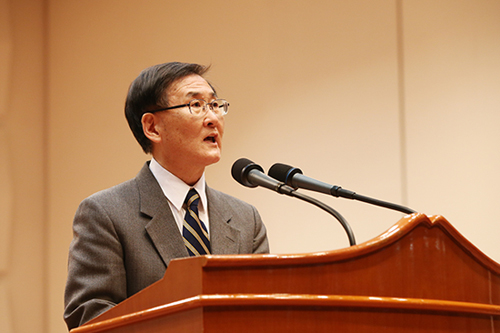 New Year's Greeting Ceremony Held on January 2nd
The year 2014 is the Year of the Wooden Horse in Chinese astrology: A dynamic (Horse) and prosperous (Wood) New Year to all at KAIST!
President Steve Kang hosted a New Year’s greeting ceremony on January 2 nd at an auditorium on campus and gave a keynote speech on major administrative policies and academic programs to take effect for the year 2014. K-Valley and End-Run projects, as well as a review of efforts to decentralize the academic system in order to grant colleges and departments more autonomy in their operation of education and research programs were among the few discussed.
The K-Valley project will help KAIST and its neighboring research complex, the Daedeok Innopolis, build a leading multi-layered, innovative cluster of startups and new businesses in Korea through close collaborations among university, research institutes, and industry. The End-Run is a project to attract global investors and companies to Korea that will capitalize on the highest quality talents and technologies developed by KAIST.
President Steve Kang said that he would continue the last year’s campaign to make the campus “happier” throughout this year, encouraging members of the KAIST community to trust and respect and communicate better with each other.
2014.01.07 View 7613
New Year's Greeting Ceremony Held on January 2nd
The year 2014 is the Year of the Wooden Horse in Chinese astrology: A dynamic (Horse) and prosperous (Wood) New Year to all at KAIST!
President Steve Kang hosted a New Year’s greeting ceremony on January 2 nd at an auditorium on campus and gave a keynote speech on major administrative policies and academic programs to take effect for the year 2014. K-Valley and End-Run projects, as well as a review of efforts to decentralize the academic system in order to grant colleges and departments more autonomy in their operation of education and research programs were among the few discussed.
The K-Valley project will help KAIST and its neighboring research complex, the Daedeok Innopolis, build a leading multi-layered, innovative cluster of startups and new businesses in Korea through close collaborations among university, research institutes, and industry. The End-Run is a project to attract global investors and companies to Korea that will capitalize on the highest quality talents and technologies developed by KAIST.
President Steve Kang said that he would continue the last year’s campaign to make the campus “happier” throughout this year, encouraging members of the KAIST community to trust and respect and communicate better with each other.
2014.01.07 View 7613 -
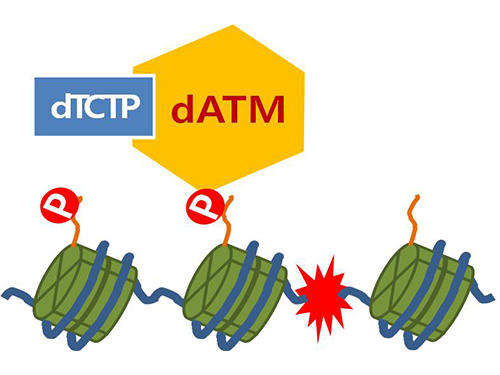 Mechanism in regulation of cancer-related key enzyme, ATM, for DNA damage and repair revealed
Professor Kwang-Wook Choi
A research team led by Professor Kwang-Wook Choi and Dr. Seong-Tae Hong from the Department of Biological Sciences at KAIST has successfully investigated the operational mechanism of the protein Ataxia Telangiectasia Mutated (ATM), an essential protein to the function of a crucial key enzyme that repairs the damaged DNA which stores biometric information. The results were published on December 19th Nature Communications online edition.
All organisms, including humans, constantly strive to protect the information within their DNA from damages posed by a number of factors, such as carbonized materials in our daily food intake, radioactive materials such as radon emitting from the cement of buildings or ultraviolet of the sunlight, which could be a trigger for cancer.
In order to keep the DNA information safe, the organisms are always carrying out complex and sophisticated DNA repair work, which involves the crucial DNA damage repair protein ATM. Consequently, a faulty ATM leads to higher risks of cancer.
Until now, academia predicted that the Translationally Controlled Tumor Protein (TCTP) will play an important role in regulating the function of ATM. However, since most of main research regarding TCTP has only been conducted in cultured cells, it was unable to identify exactly what mechanisms TCTP employs to control ATM.
The KAIST research team identified that TCTP can combine with ATM or increase the enzymatic activity of ATM. In addition, Drosophilia, one of the most widely used model organisms for molecular genetics, has been used to identify that TCTP and ATM play a very important role in repairing the DNA damaged by radiation. This information has allowed the researchers to establish TCTP’s essential function in maintaining the DNA information in cell cultures and even in higher organisms, and to provide specific and important clues to the regulation of ATM by TCTP.
Professor Kwang-Wook Choi said, “Our research is a good example that basic research using Drosophilia can make important contributions to understanding the process of diseases, such as cancer, and to developing adequate treatment.”
The research has been funded by the Ministry of Science, ICT and Future Planning, Republic of Korea, and the National Research Foundation of Korea.
Figure 1. When the amount of TCTP protein is reduced, cells of the Drosophila's eye are abnormally deformed by radiation. Scale bars = 200mm
Figure 2. When the amount of TCTP protein is reduced, the chromosomes of Drosophilia are easily broken by radiation. Scale bars = 10 mm.
Figure 3. When gene expressions of TCTP and ATM are reduced, large defects occur in the normal development of the eye. (Left: normal Drosophilia's eye, right: development-deficient eye)
Figure 4. ATM marks the position of the broken DNA, with TCTP helping to facilitate this reaction. DNA (blue line) within the cell nucleus is coiled around the histone protein (green cylinder). When DNA is broken, ATM protein attaches a phosphate group (P). Multiple DNA repair protein recognizes the phosphate as a signal that requires repair and gathers at the site.
2014.01.07 View 15194
Mechanism in regulation of cancer-related key enzyme, ATM, for DNA damage and repair revealed
Professor Kwang-Wook Choi
A research team led by Professor Kwang-Wook Choi and Dr. Seong-Tae Hong from the Department of Biological Sciences at KAIST has successfully investigated the operational mechanism of the protein Ataxia Telangiectasia Mutated (ATM), an essential protein to the function of a crucial key enzyme that repairs the damaged DNA which stores biometric information. The results were published on December 19th Nature Communications online edition.
All organisms, including humans, constantly strive to protect the information within their DNA from damages posed by a number of factors, such as carbonized materials in our daily food intake, radioactive materials such as radon emitting from the cement of buildings or ultraviolet of the sunlight, which could be a trigger for cancer.
In order to keep the DNA information safe, the organisms are always carrying out complex and sophisticated DNA repair work, which involves the crucial DNA damage repair protein ATM. Consequently, a faulty ATM leads to higher risks of cancer.
Until now, academia predicted that the Translationally Controlled Tumor Protein (TCTP) will play an important role in regulating the function of ATM. However, since most of main research regarding TCTP has only been conducted in cultured cells, it was unable to identify exactly what mechanisms TCTP employs to control ATM.
The KAIST research team identified that TCTP can combine with ATM or increase the enzymatic activity of ATM. In addition, Drosophilia, one of the most widely used model organisms for molecular genetics, has been used to identify that TCTP and ATM play a very important role in repairing the DNA damaged by radiation. This information has allowed the researchers to establish TCTP’s essential function in maintaining the DNA information in cell cultures and even in higher organisms, and to provide specific and important clues to the regulation of ATM by TCTP.
Professor Kwang-Wook Choi said, “Our research is a good example that basic research using Drosophilia can make important contributions to understanding the process of diseases, such as cancer, and to developing adequate treatment.”
The research has been funded by the Ministry of Science, ICT and Future Planning, Republic of Korea, and the National Research Foundation of Korea.
Figure 1. When the amount of TCTP protein is reduced, cells of the Drosophila's eye are abnormally deformed by radiation. Scale bars = 200mm
Figure 2. When the amount of TCTP protein is reduced, the chromosomes of Drosophilia are easily broken by radiation. Scale bars = 10 mm.
Figure 3. When gene expressions of TCTP and ATM are reduced, large defects occur in the normal development of the eye. (Left: normal Drosophilia's eye, right: development-deficient eye)
Figure 4. ATM marks the position of the broken DNA, with TCTP helping to facilitate this reaction. DNA (blue line) within the cell nucleus is coiled around the histone protein (green cylinder). When DNA is broken, ATM protein attaches a phosphate group (P). Multiple DNA repair protein recognizes the phosphate as a signal that requires repair and gathers at the site.
2014.01.07 View 15194 -
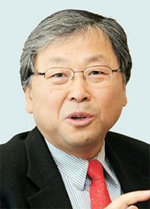 Professor Jin-Hyung Kim appointed as the founding director of the Software Policy Research Center
Professor Jin-Hyung Kim from the Department of Computer Science at KAIST was appointed as the founding director of the newly established research institute, the Software Policy Research Center. He will serve as director for three years. The research center will undertake studies and analysis on software policy, statistics, and new software technology.
2014.01.05 View 9427
Professor Jin-Hyung Kim appointed as the founding director of the Software Policy Research Center
Professor Jin-Hyung Kim from the Department of Computer Science at KAIST was appointed as the founding director of the newly established research institute, the Software Policy Research Center. He will serve as director for three years. The research center will undertake studies and analysis on software policy, statistics, and new software technology.
2014.01.05 View 9427